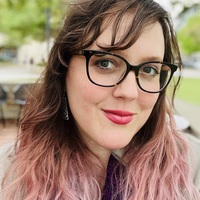
Elizabeth K . Eger
Dr. Elizabeth K. Eger is an Associate Professor at Texas State University in the Department of Communication Studies. Her scholarship and teaching focuses on inquiry of communication, organizing, difference, intersectionality, health, and identity.
Dr. Eger's qualitative, critical, and rhetorical communication research, pedagogy, and community outreach investigates contemporary work and organizations as both inaccessible and pervasive. She examines work’s influence in our lives, organizational experiences, rhetoric, media, and health. Dr. E also specifically researches identity-based organizing, or collectives who organizes around shared identities and for intersectional needs, and inequities and justice for LGBTQ+ people at work and in health. Dr. Eger’s newest, ongoing research examines presenteeism (working while sick), LGBTQ+ workers and health inequities, and COVID-19 organizational, work, and health communication practices.
Dr. Eger received her PhD from the University of Colorado Boulder, and her dissertation was a three-year ethnography of a southwestern transgender resource center focused on serving intersectional experiences and identities. In addition to communication scholarship, she focuses on interdisciplinary research in women and gender studies, queer and trans studies, health and work, and disability studies. She holds graduate certificates in Critical Theory and Women and Gender Studies.
Prior to Texas State, Dr. E worked as a graduate Social Scientist with the National Center for Women & Information Technology (NCWIT) on the K-12 and Workforce Alliance research teams for 5 years. In this role, she conducted original social science research, wrote comprehensive literature reviews, and created reports and resources for the meaningful participation of underrepresented girls and women in tech education and organizations.
Dr. Eger's published work appears in venues including the Journal of Applied Communication Research, Management Communication Quarterly, Feminist Media Studies, Anthropology & Education Quarterly, International Journal of Business Communication, and the third edition of The SAGE Handbook of Organizational Communication. She can be reached via email at eger@txstate.edu and found tweeting about #AcademicTwitter, #RescueDogs, #LiveMusic, and #ComfortComm on Twitter @egerphd.
Dr. Eger's qualitative, critical, and rhetorical communication research, pedagogy, and community outreach investigates contemporary work and organizations as both inaccessible and pervasive. She examines work’s influence in our lives, organizational experiences, rhetoric, media, and health. Dr. E also specifically researches identity-based organizing, or collectives who organizes around shared identities and for intersectional needs, and inequities and justice for LGBTQ+ people at work and in health. Dr. Eger’s newest, ongoing research examines presenteeism (working while sick), LGBTQ+ workers and health inequities, and COVID-19 organizational, work, and health communication practices.
Dr. Eger received her PhD from the University of Colorado Boulder, and her dissertation was a three-year ethnography of a southwestern transgender resource center focused on serving intersectional experiences and identities. In addition to communication scholarship, she focuses on interdisciplinary research in women and gender studies, queer and trans studies, health and work, and disability studies. She holds graduate certificates in Critical Theory and Women and Gender Studies.
Prior to Texas State, Dr. E worked as a graduate Social Scientist with the National Center for Women & Information Technology (NCWIT) on the K-12 and Workforce Alliance research teams for 5 years. In this role, she conducted original social science research, wrote comprehensive literature reviews, and created reports and resources for the meaningful participation of underrepresented girls and women in tech education and organizations.
Dr. Eger's published work appears in venues including the Journal of Applied Communication Research, Management Communication Quarterly, Feminist Media Studies, Anthropology & Education Quarterly, International Journal of Business Communication, and the third edition of The SAGE Handbook of Organizational Communication. She can be reached via email at eger@txstate.edu and found tweeting about #AcademicTwitter, #RescueDogs, #LiveMusic, and #ComfortComm on Twitter @egerphd.
less
Related Authors
Noel B. Salazar
KU Leuven
Josiah Heyman
University of Texas at El Paso (UTEP)
T. Alexandra Beauregard
Birkbeck College, University of London
Mariya Ivancheva
University of Strathclyde, Glasgow
Naim Kapucu
University of Central Florida
Javier Díaz Noci
Pompeu Fabra University
Chiara Valentini
University of Jyväskylä
Perry Dane
Rutgers, The State University of New Jersey
Andrea Peto
Central European University
Mirko Canevaro
University of Edinburgh
InterestsView All (29)



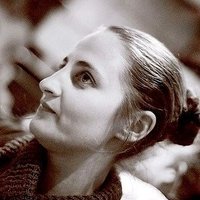
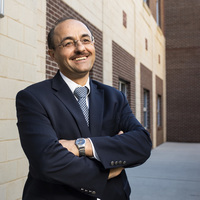

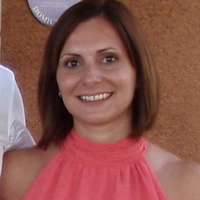
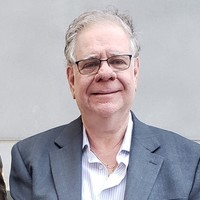
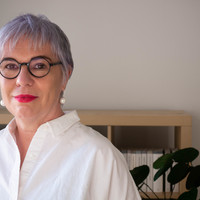
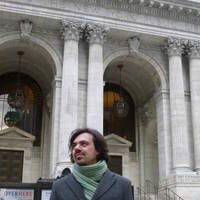
Uploads
Articles by Elizabeth K . Eger
Our work offers an important methodological contribution to enrich discus- sions of identity in organizational ethnography praxis. We grapple with and analyze the negotiation of firsthand accounts, illuminating how social identities not only are salient while conducting fieldwork but also shift and change over context and time, bringing forth meaningful theoretical and methodological nuances. Negotiating our own identities with participants creates the potential for more relevant and reflexive insights that can enrich organizational communication inquiry. Through examining such negotiations and taking researcher identity as a central component of research processes, we center an aspect of ethnographic research that is largely elided in publishing.
To consider “the closet” for transgender workers, I present conditions of transgender employment discrimination and situate my inquiry through difference and work theories. I then share exemplars of transgender jobseekers’ closeting communication before exploring areas for future organizational communication research.
university classroom is an instructive institutional space of socialization for
individuals as thinkers and workers, we believe organizational communication instruction should place difference at its forefront to prepare students to anticipate “the complex interactions characteristic of diverse workplaces” (Deetz & Eger, 2014, p. 27). Inspired by Brenda Allen’s (2005) theorizing of “difference matters,” we position the classroom as a space to challenge normative assumptions of difference and sameness to help students understand the historical implications of discourses of self and other in ways that can “empower organizational actors to work for social change” (p. 49).
Book Chapters by Elizabeth K . Eger
Deetz, S.A., & Eger, E.K. (2014). Developing a Metatheoretical Perspective for Organizational Communication Studies. In L.L. Putnam & D. Mumby (Eds.), The SAGE Handbook of Organizational Communication: Advances in Theory, Research, and Methods (3rd ed.) (pp. 27-48). Thousand Oaks: Sage.
Reports by Elizabeth K . Eger
• Tell a “coherent story” about the current state of affairs for technical women, synthesizing the best available data into one, easy-to-access resource.
• Provide an overall summary of the key barriers to women’s participation in technology and promising practices for addressing these barriers.
• Serve as a benchmark for measuring the future effects of industry efforts to increase women’s participation.
• Serve as a resource for advocates, policymakers, and change agents.
When considering issues related to gender and technology, most research over the past two decades has focused on women. However, expanding this focus to include men is crucial for several reasons:
* Men are often the leaders, power holders, and gatekeepers in the computing workplace. Enlisting men’s participation is vital for change efforts to be truly effective.
* Women report that support and encouragement to pursue and persist in technical careers often comes from men. Given this fact, men already play a significant role in improving conditions for women in technology and computing.
* Gender reform is not a women’s issue; it is also about men. We often act as though gender is only relevant when it comes to women, but men are also gendered beings. Like women, they experience pressures to live up to certain gender norms and face costs if they violate these norms. Women and men need to work together as allies in order to change work cultures that prevent all of us from realizing our full potential.
With these factors in mind, investigating men’s experiences with gender diversity is important for understanding what discourages or encourages men to become advocates. This knowledge can improve diversity initiatives and facilitate working together to invent new options for women and men.
Papers by Elizabeth K . Eger
Our work offers an important methodological contribution to enrich discus- sions of identity in organizational ethnography praxis. We grapple with and analyze the negotiation of firsthand accounts, illuminating how social identities not only are salient while conducting fieldwork but also shift and change over context and time, bringing forth meaningful theoretical and methodological nuances. Negotiating our own identities with participants creates the potential for more relevant and reflexive insights that can enrich organizational communication inquiry. Through examining such negotiations and taking researcher identity as a central component of research processes, we center an aspect of ethnographic research that is largely elided in publishing.
To consider “the closet” for transgender workers, I present conditions of transgender employment discrimination and situate my inquiry through difference and work theories. I then share exemplars of transgender jobseekers’ closeting communication before exploring areas for future organizational communication research.
university classroom is an instructive institutional space of socialization for
individuals as thinkers and workers, we believe organizational communication instruction should place difference at its forefront to prepare students to anticipate “the complex interactions characteristic of diverse workplaces” (Deetz & Eger, 2014, p. 27). Inspired by Brenda Allen’s (2005) theorizing of “difference matters,” we position the classroom as a space to challenge normative assumptions of difference and sameness to help students understand the historical implications of discourses of self and other in ways that can “empower organizational actors to work for social change” (p. 49).
Deetz, S.A., & Eger, E.K. (2014). Developing a Metatheoretical Perspective for Organizational Communication Studies. In L.L. Putnam & D. Mumby (Eds.), The SAGE Handbook of Organizational Communication: Advances in Theory, Research, and Methods (3rd ed.) (pp. 27-48). Thousand Oaks: Sage.
• Tell a “coherent story” about the current state of affairs for technical women, synthesizing the best available data into one, easy-to-access resource.
• Provide an overall summary of the key barriers to women’s participation in technology and promising practices for addressing these barriers.
• Serve as a benchmark for measuring the future effects of industry efforts to increase women’s participation.
• Serve as a resource for advocates, policymakers, and change agents.
When considering issues related to gender and technology, most research over the past two decades has focused on women. However, expanding this focus to include men is crucial for several reasons:
* Men are often the leaders, power holders, and gatekeepers in the computing workplace. Enlisting men’s participation is vital for change efforts to be truly effective.
* Women report that support and encouragement to pursue and persist in technical careers often comes from men. Given this fact, men already play a significant role in improving conditions for women in technology and computing.
* Gender reform is not a women’s issue; it is also about men. We often act as though gender is only relevant when it comes to women, but men are also gendered beings. Like women, they experience pressures to live up to certain gender norms and face costs if they violate these norms. Women and men need to work together as allies in order to change work cultures that prevent all of us from realizing our full potential.
With these factors in mind, investigating men’s experiences with gender diversity is important for understanding what discourages or encourages men to become advocates. This knowledge can improve diversity initiatives and facilitate working together to invent new options for women and men.